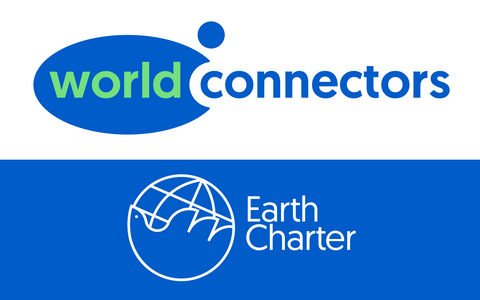Agenda 2030 – Transforming Our World
Where do we stand, as world community, with the shift to a sustainable world, with 2030 as the horizon? What is the status of the individual UN member states considering the implementation of the 17 global goals, which are supposed to shape this transformation? These questions are central to the UN High Level Political Forum on Sustainable Development (HLPF) that takes place annually in July in New York. It deals with a whole new format, which has started since the agreement in September 2015 on Agenda 2030, with the 17 concrete Global Goals for Sustainable Development (SDGs) as the roadmap.
Thanks to my engagement with Earth Charter Initiative and the Global Goals Accelerator campaign in The Netherlands, I am closely involved in this process. I was fortunate to attend the HLPF in July 2017 in New York, together with Veronique Swinkels, one of the Earth Charter Friends and co-initiator of Global Goals Accelerator.
This 2nd year, the Netherlands reported together with 42 other member states, among them India, Kenya, Costa Rica and Japan. The Netherlands presented their first ‘Selfie’ as honest as possible, where overseas parts of the Kingdom and a variety of stakeholders (business, non governmental organizations, youth, knowledge institutions and local governments) gave input as well. In New York an English version of the progress report was presented, in which the accent has increasingly shifted to the role of the national government. View a short video with an impression of the Dutch presentation here.
To assess the global progress of the SDGs, it would make sense to analyze all national progress reports. However, that will provide an imperfect image. Especially because most countries have made a selection from the 17 goals, and show mostly what has been positive. The ministerial closing statement on which agreement has been reached on the 19th of July falls short as well. The debate on the statement gave us insights in the political objections of a variety of country groups, with the retracting movement of the USA on climate action as an obvious example. Moreover, all states have agreed upon a text which is weaker than Agenda 2030 with regard to reproductive and sexual health and rights and empowerment of girls and women. On the other hand, other parties apart from the government demonstrated to have a positive influence on the implementation of the goals.
This is where I reach the positive developments, which will hopefully play a decisive role in the continuation of the comprehensive SDG-process. The attendance and input of the youth was noticeable. This is not only apparent from the fact that youth representatives from the Netherlands and Belgium received speaking time during the plenary. An event organized by youth in the UN had more visitors than other meetings, and the youth participated abundantly in the parallel business forum. Next to that, it is of importance that a number of societal actors have combined their forces under the name ‘Action for Sustainable Development’ (A4SD). A part of this coalition is ‘SDG Watch Europe’. A4SD considers it a common mission to facilitate people from all walks of life to participate in the SDG-process. For instance, it was possible for inhabitants of the slums of Kenya and women from the anti-poverty movement in India and Latin America to be present in New York and speak out.
In collaboration with the network ‘Social Watch’ shadow reports have been drafted under the title ‘Spotlight Report’. This makes it possible to offer a more nuanced picture of the implementation of the SDGs in countries where no inclusive reporting process exists (yet).
In my opinion, from all sources and conversations can be concluded that there is broad confidence in the changing power of Agenda 2030 including the 17 SDGs. One concern is that the SDGs are still insufficiently known among the wider circles of society. A positive exception to this are countries where the coordination of the implementation of the SDGs has been accommodated on a high level with the prime minister or president as guardian. I hope that Worldconnectors can plead for high-level political engagement with the new cabinet. Another idea for the Worldconnectors is to give one of the new ‘Circles of 17’ shape and content.
‘Circles of 17’ will be facilitated by Global Goals Accelerators and will be shaped by ‘Goal Keepers’ who learn from each other through the connection between the goals they embrace and the question what transformation really means. The Earth Charter which is widely endorsed worldwide is our ethical guide. Since implementation of the SDGs requires a change of mind and heart.


Comments are closed.